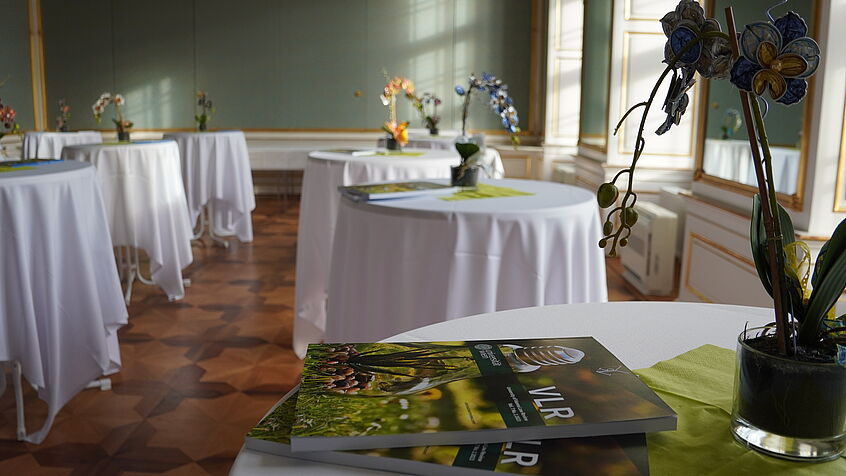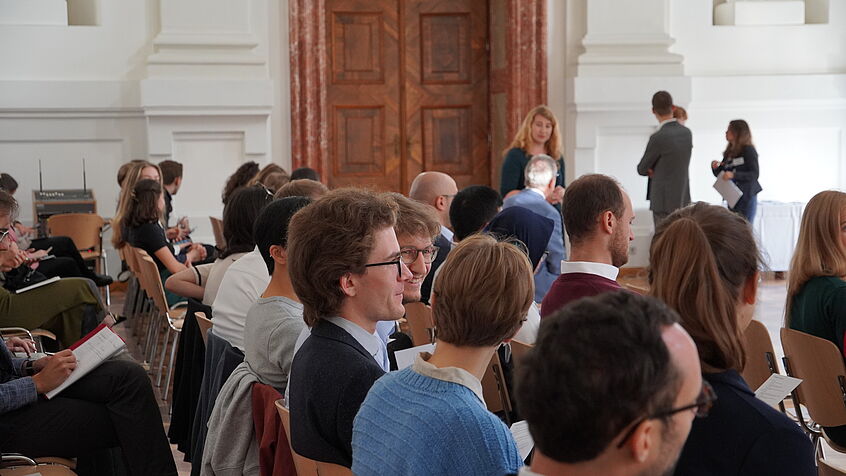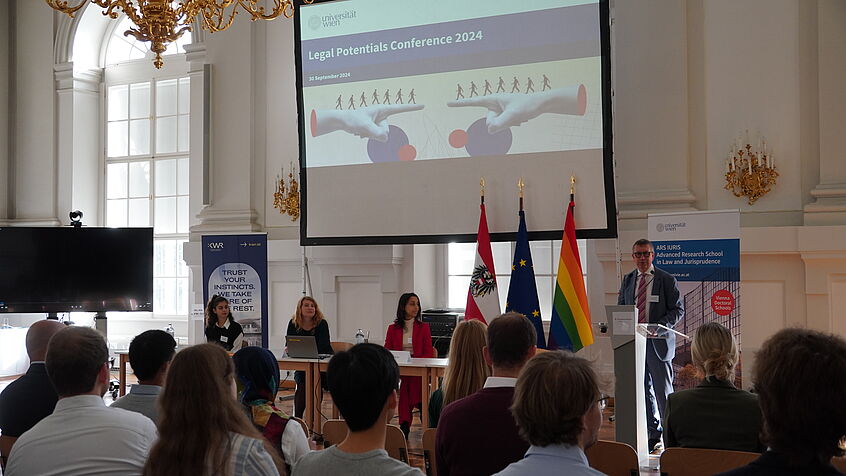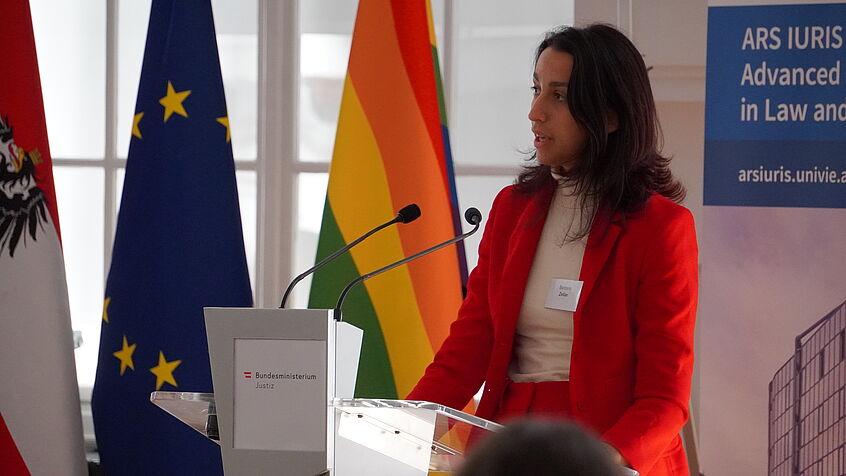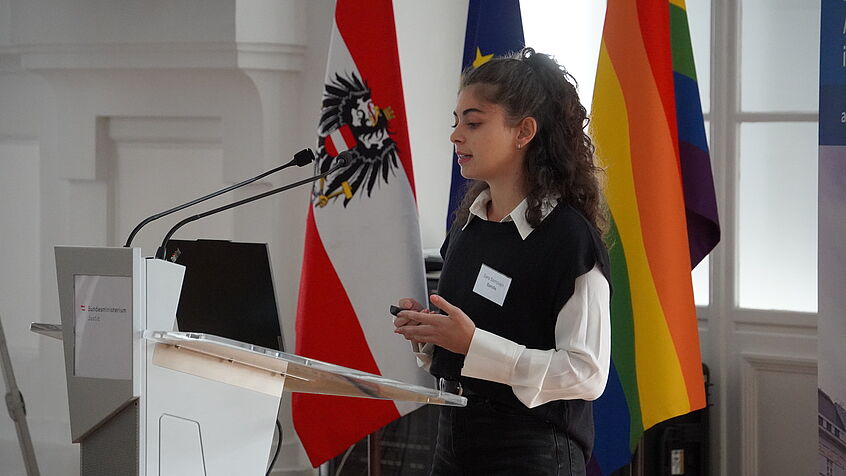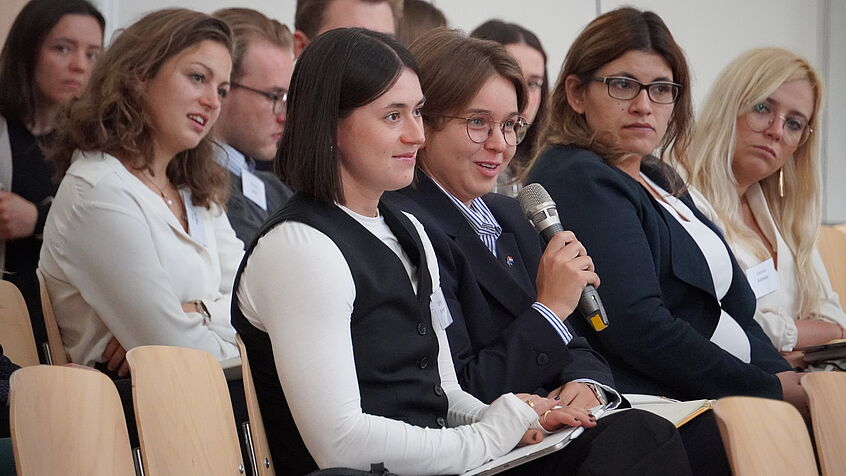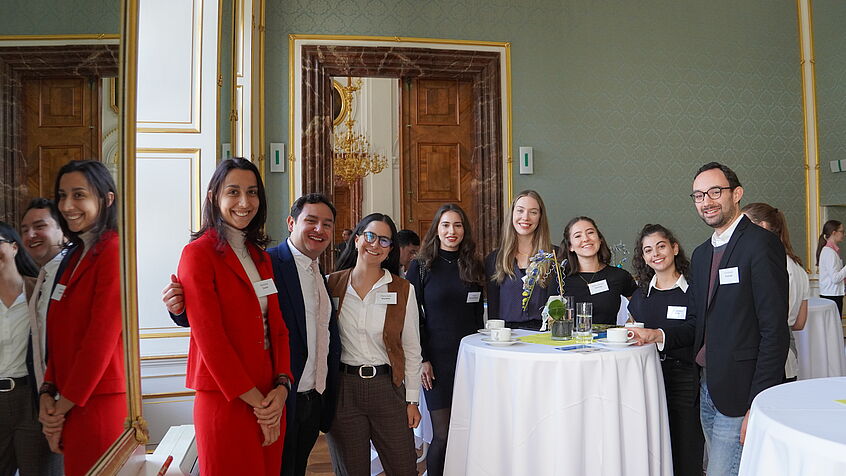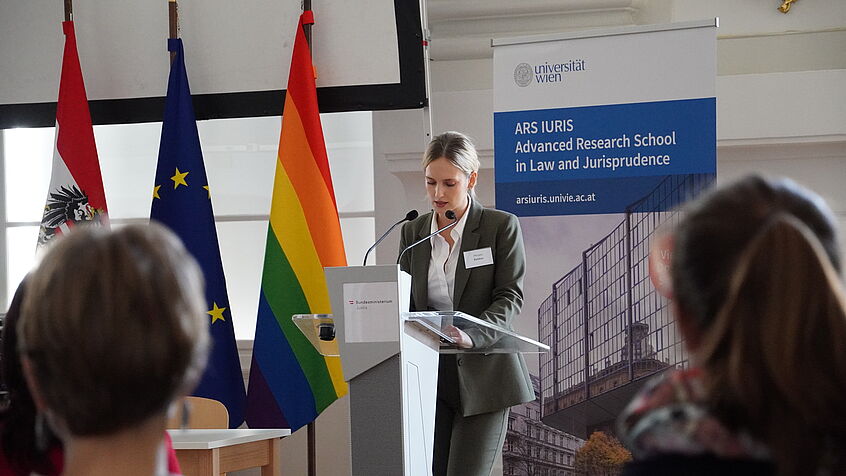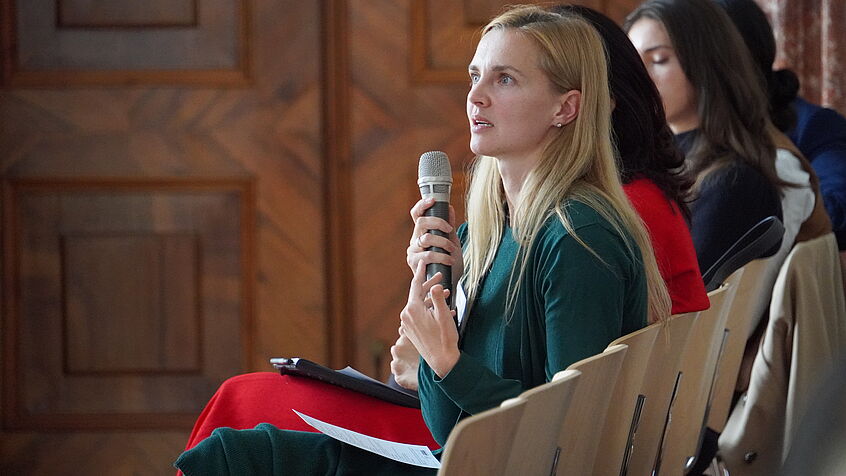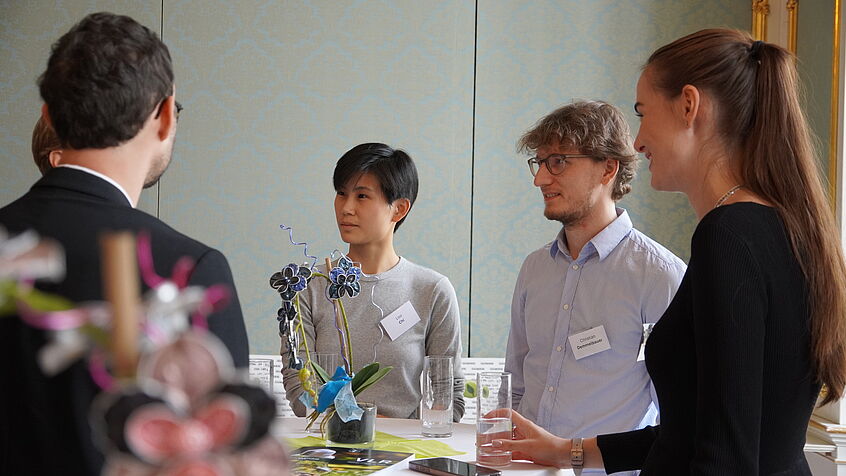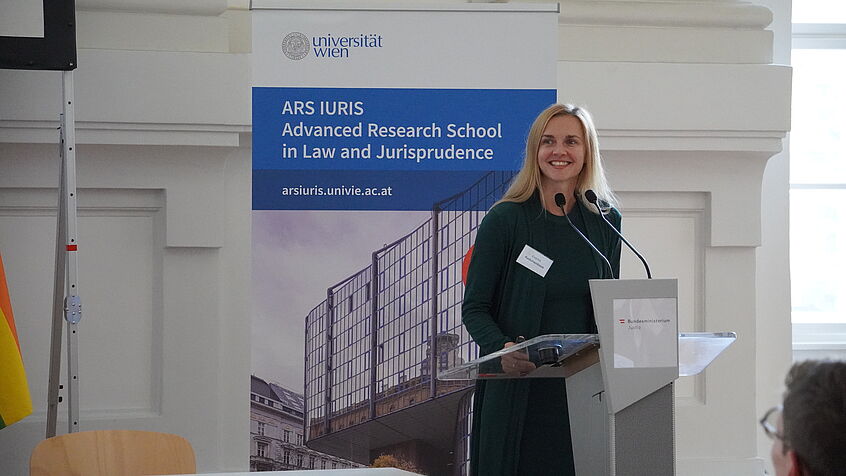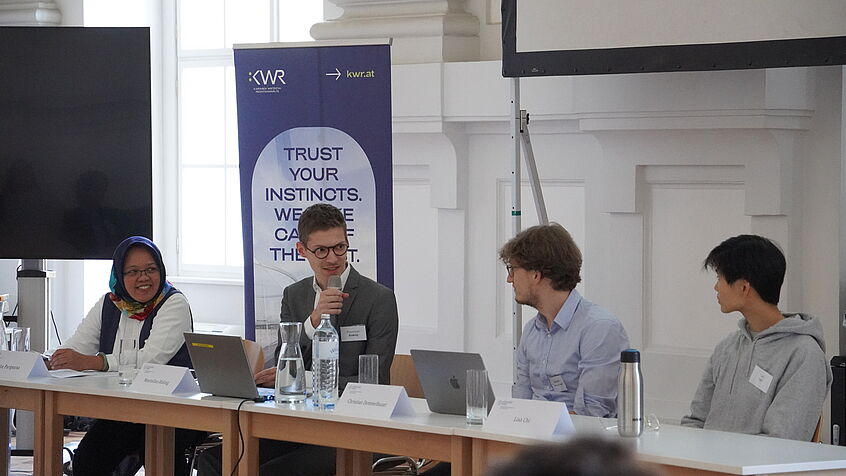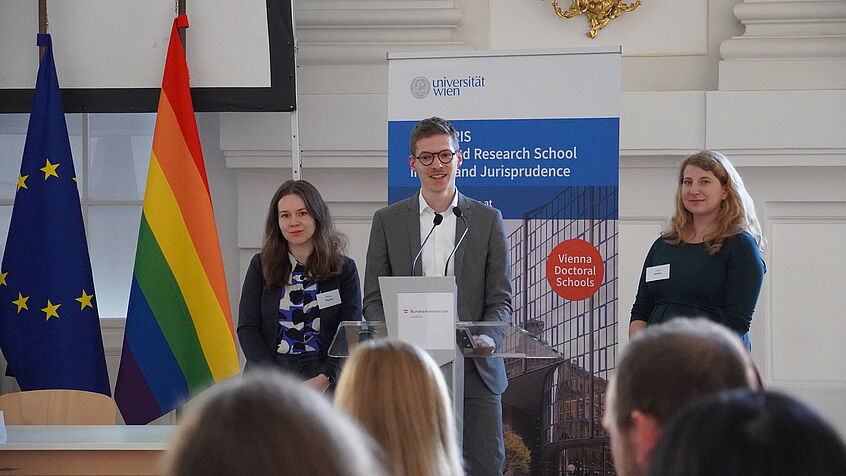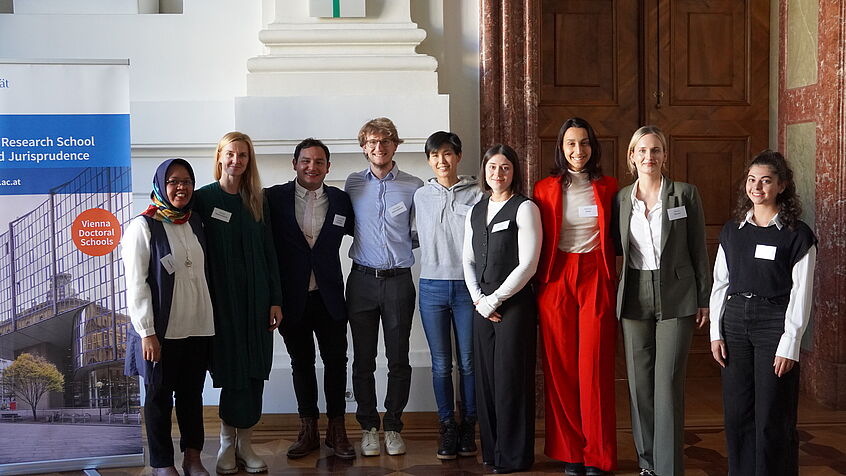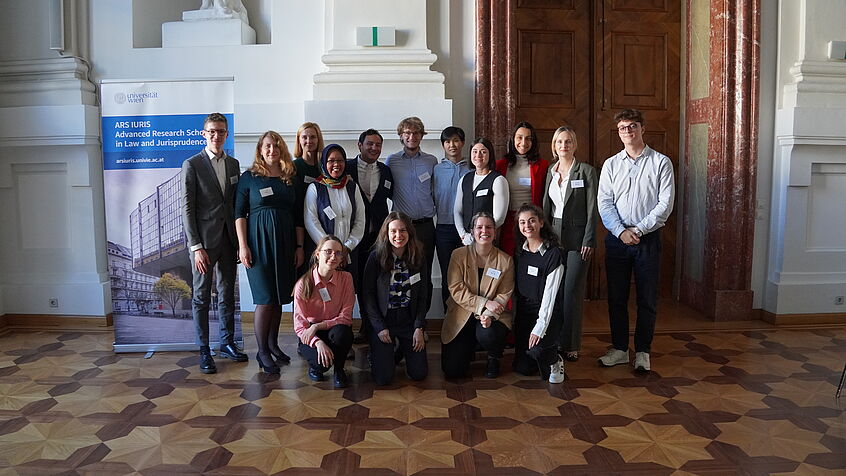Legal Potentials Conference 2024
2nd Ars Iuris Legal Potentials Conference
Law and Politics in a Polarized World
In 2024, more than half of the world's population will live in countries where nationwide elections are held. Lines of social conflict are revealed with particular clarity as a result. The public narrative paints a picture of an irreconcilable and divided society in which communication between the increasingly fragmented sub-publics comes to a standstill and some groups abandon the common democratic system altogether. Against this backdrop, the question of the relationship between law and politics in a conflict-ridden world arises: To what extent does the legal system depend on social consensus? Is the law itself a driving factor of social polarization? Can the law mediate and counteract polarizing tendencies? Join us as we explore these critical questions at the 2nd Ars Iuris Legal Potentials Conference.
September 30th, 2024 | Federal Ministry of Justice | Vienna, Austria
Conference report by Hanna Palmanshofer and Martin Bernard
This year’s Ars Iuris Legal Potentials Conference came at a pivotal moment. Set on the day after the Austrian parliamentary elections, the topic of “Law and Politics in a Polarized World” seemed to already be on everyone’s mind. It was therefore unsurprising that the presentations – skillfully selected by Lisa Rösler, Rosa-Maria Mayerl and Maximilian Blaßnig – led to fruitful discussions and provided ample food for thought.
Professor Franz-Stefan Meissel, Vice Dean of the Faculty of Law and Speaker of the Ars Iuris Vienna, opened the conference, followed by welcome remarks from Alma Zadić, Federal Minster of Justice. The latter also kindly accommodated the participants of the conference in the magnificent ceremonial hall of the Palais Trautson. Thanks to the outstanding organization by Mary Barrett, Donat Binder and Lana Krug from the Advanced Research School in Law and Jurisprudence (Ars Iuris Vienna), young legal researchers had the opportunity to connect and share their ideas across four panels.
The first panel, chaired by Lisa Rösler, laid the groundwork for the rest of the day and centered on foundational issues related to the conference topic. Barbara Zeller’s talk “Between conflict and Cooperation: Regulating the Relationship Between Law and Politics” centered on the often-fraught relationship between “the law” and “the political”. While theorists such as Kant tend to prioritize the legal over the political, the constitutional reality shows no general priority between the two spheres. Flexible conceptions are thus preferable as they allow harmonization, Zeller argued, while conflicts between the two spheres are best understood as competence conflicts. Adopting Alexy’s differentiation between rules and principles, Zeller defined competences as prima facie rules whose definitive content is determined by formal principles. These formal principles need to be brought into a proportionate relationship with one another. Employing established but institutionally sensitive structures of the proportionality test, cooperation between the legal and the political sphere can succeed.
Sara Sampayo Sande then presented the findings of her paper “How to Measure Polarization: A Systematic Review of the Literature”. She summarized recent academic work on the phenomenon of polarization in social media. While earlier research had a more positive view on social media and showed that it had a potential to democratize the debate, more recent research offers a grimmer perspective: In her provisional sample of 18 articles, the view of polarization as a consequence of social media is predominant. Out of the different concepts of polarization, affective polarization seems to be the prime focus of the studies. Overall, researching polarization seems to be a trend, especially in the area of psychology and computer sciences. More research is therefore to be expected.
The role of the EU in an increasingly polarized (online) world was the topic of the second panel, chaired by Rosa-Maria Mayerl. Miriam Soldan focused on new measures to combat online disinformation via the Digital Services Act (DSA) in her talk “Making Europa Fit for the Digital Age?: The EU’s Approach to Regulating Online Disinformation from a Human Rights Perspective”. The DSA lacks a legal definition of “disinformation”. However, the DSA was not created in a vacuum: Prior European initiatives focused primarily on disinformation in a broader sense, encompassing evidently false and misleading information. With the DSA, Soldan argued, the EU took its conception of disinformation a step further to also include the intentional distribution of disinformation. For example, not only an article containing misleading information is covered by the provisions of the DSA but also the post of a user sharing a link to such an article. Just as disinformation poses threats to various human rights, battling disinformation too must be carefully weighed with the freedom of expression and information. While the risk management obligations under Articles 34 and 35 DSA are in line with Art 10 ECHR, there is still room for improvement, Soldan concluded. Further clarification to the definition of disinformation will be required as well as strict public oversight regarding platforms’ moderation practices in the future.
In keeping with the theme of new legislative measures by the EU, Sophie Bohnert used the EU’s Carbon Border Adjustment Mechanism (CBAM) to show that international trade relations are also increasingly characterized by polarization. Her talk “‘Toxic Unilateralism’:
How the EU’s Unilateral Trade-Related Measures drive Polarization in Global Trade Relations” highlighted the EU’s recent shift to unilateralism. While the era after 1947 was characterized by a wave of global integration, since 2016 greater unilateralism and more and more polarization in international trade relations can be observed. Unilateral measures like the CBAM can lead to a vicious circle, triggering other countries to introduce unilateral measures themselves. Bohnert advocated for an embracement of “re-globalization” with a more “people-centric” approach and enhanced cooperation to prevent trade restrictions in a time of crisis.
After a pleasant lunch break, the panel chaired by Cornelia Tscheppe marked the beginning of the afternoon session, where Ksenia Radchenkova presented her work on “Sovereignty Discourse Instrumentalization: Cases of Russia and China”, exploring how the concept of sovereignty – rooted in Western political philosophy – is uniquely interpreted by both countries. This interpretation shapes their political and legal stances, particularly regarding Western hegemony, resulting in multiple meanings within international legal terminology and conflicting legal realities. Radchenkova traced the evolution of sovereignty in Russia, influenced by autocratic traditions and the Soviet legacy, and contrasted it with China’s development of both internal and external sovereignty shaped by socialist principles and historical ideals of Great Unity. Despite both nations prioritizing local cultural values over Western norms, their distinct interpretations arise from different historical backgrounds and philosophical foundations.
Continuing with the theme of international relations, Daniel Ricardo Quiroga Villamarin’s presentation “Challenging the Global Herrenhaus: The Unending Quest to Democratize International Relations Within and Beyond the United Nations”, raised critical questions about who truly represents “the people” in a system that often prioritizes state interests and diplomatic negotiations. By examining the complexities of international relations through the lens of national representation, Quiroga critiqued the structure of international parliaments, which often consist of multicameral systems featuring both higher and lower chambers. He challenged the dominance of the UN Security Council, likening its power to that of a senatorial chamber. Underscoring that representation lies in the hands of diplomats rather than “the people” in the current system, Quiroga consequently made a compelling case for a model of direct international democracy.
The final panel, chaired by Maximilian Blaßnig, explored how the law must be shaped and implemented to protect and uphold the rights of minorities in society. In her presentation, “Blasphemy Law: A Threat to Polarizing Indonesian Society,” Amira Paripurna shed light on the complex relationship between religion and law in Indonesia and how the blasphemy law of 1965 has fueled societal polarization. She illustrated the law’s selective application through case studies like the Ahmadiyya and Tajul Muluk cases, where accusations of heresy led to violence against minorities. Instead of siding with the oppressed, the courts, by following non-binding opinions (“fatwas”) of Islamic scholars, affirmed the heresy claims and sentenced the accused. Paripurna also discussed the Meiliana case, where a Buddhist woman faced prison time after complaining about loud calls to prayer, and the politically motivated backlash against the Christian governor of Jakarta. Looking forward, Paripurna expressed optimism for the upcoming New Criminal Code, set to take effect in 2026, which transitions blasphemy law to hate speech and will hopefully pave the way for a human rights based approach.
Building on the notion that law can drive societal change, Lisa Chi and Christian Demmelbauer demonstrated “Why and How Law Must Be Woke”, arguing that “woke law” is both defensible and necessary for confronting societal injustices. They pointed out that the term “woke” has been used derogatorily and has often been conflated with “identity politics”, but they aim to deconstruct this anti-woke critique. Confronting Fukuyama’s identity politics critique (wokeism as “identity narcissism”) and Deneen’s anti-liberal criticism (that wokeism dissolves social norms which provide orientation), they contend that wokeism is rooted in an awareness of oppression and the need for marginalized identities to gain recognition. They define “woke law” as legislation that supports this awareness, asserting it can be normative while remaining neutral regarding different ways of life. In addressing critics, they clarify that wokeism does not require universal adherence to specific lifestyles but instead seeks to create conditions for recognition, challenging norms that dictate what is considered “normal” in society.
If this conference report has piqued your interest and left you wishing you could have attended, you can be on the lookout for a special issue of the Vienna Law Review, where you can explore the topics discussed in greater depth.

